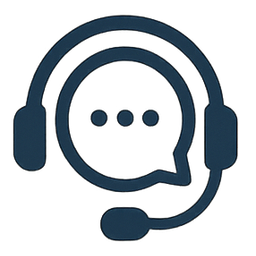In the bustling world of hospitality, customer service is the cornerstone of success. It’s the golden thread that connects front-line teams with guests, turning ordinary interactions into memorable experiences. With travelers and patrons increasingly expecting personalized and seamless service, the importance of effectively training your team cannot be overstated. This article delves into the strategies and approaches to refine customer service in the hospitality industry, ensuring your establishment stands out in a competitive marketplace.
Understanding the Importance of Customer Service in Hospitality
Customer service in hospitality is not just about providing a bed for the night or a meal on the table. It’s about creating an environment where guests feel valued and cared for. Positive customer experiences lead to repeat business, positive reviews, and word-of-mouth referrals, all of which are crucial for business growth in the hospitality sector.
For instance, a survey by J.D. Power highlights that hotels and restaurants with higher customer satisfaction ratings tend to enjoy healthier financial performance. Therefore, investing in customer service training is not just a cost but a revenue-generating asset.
Building a Customer-Centric Culture
Customer-centricity begins at the top. Leadership must not only advocate for excellent customer service but also embody those principles in their interactions and business practices. Creating a culture of service excellence involves:
- Leadership Commitment : Leaders should demonstrate commitment by participating in customer service training alongside their teams. This shows that service quality is a shared goal.
- Recognizing Employee Efforts : Implement a system to acknowledge and reward employees who go above and beyond in serving customers. Recognition boosts morale and inspires others to emulate such behavior.
- Continuous Feedback and Improvement : Encourage a feedback loop where employees can share insights on customer service improvements. Utilize this feedback to refine training programs.

Actionable Training Approaches
Effective training goes beyond theoretical knowledge. It equips your team with practical skills and problem-solving abilities. Here are some practical strategies:
- Role-Playing Exercises : Conduct regular role-playing scenarios to practice real-world situations. This helps team members develop quick thinking and empathetic problem-solving skills.
- Guest Experience Workshops : Host workshops that allow employees to step into the shoes of the customer, fostering empathy and a deeper understanding of guest needs.
- Technology Utilization : Provide training on the latest hospitality technologies such as customer relationship management (CRM) tools, which can help streamline service delivery and enhance customer interactions.
Empowering Employees with Autonomy
Empowering employees with the autonomy to make decisions can significantly improve service quality. When employees are trusted to resolve issues in real-time, it leads to faster service and a more personalized guest experience. Empowerment can be achieved through :
- Clear Guidelines : Provide clear parameters within which employees can make independent decisions. This gives them confidence while ensuring they align with the business’s values and standards.
- Training for Critical Thinking : Encourage employees to think critically and creatively when handling customer requests and complaints.
- Supportive Environment : Create a supportive environment where employees feel safe to make decisions and are backed by management in the event of mistakes.
Monitoring and Measuring Service Quality
To ensure that your customer service training is effective, regular monitoring and measurement are essential. Here's how you can gauge success :
- Customer Feedback : Collect regular feedback from guests through surveys and reviews. Analyze this data to identify trends and areas for improvement.
- Mystery Shoppers : Use mystery shoppers to objectively evaluate service quality and employee performance.
- Performance Metrics : Establish key performance indicators (KPIs) for customer service and track these metrics over time to assess improvements.
Conclusion
In the hospitality industry, exceptional customer service is the key to differentiation and brand loyalty. Training your team to deliver outstanding service starts with building a customer-centric culture, equipping them with practical skills, empowering decision-making, and continuously measuring performance. By focusing on these elements, your hospitality business can transform customer service from a procedural task into a powerful strategic advantage.
Now is the time to invest in your team and set the standard for service excellence in the hospitality sector. Start by implementing these strategies to see a palpable shift in how your guests perceive their experience and watch as your business reaps the rewards.








